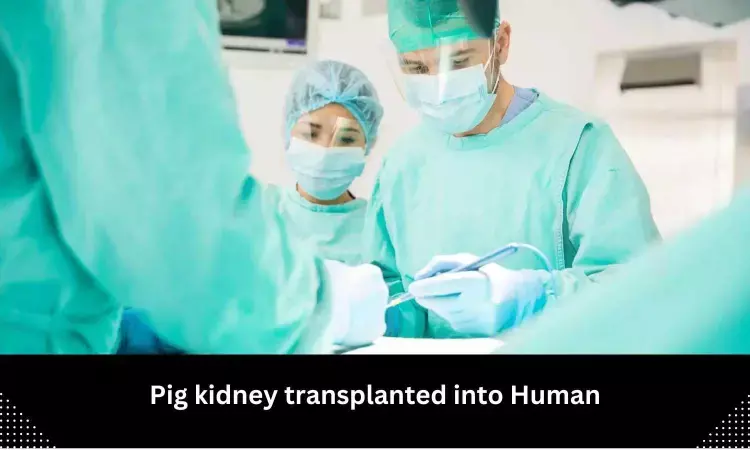- Home
- Medical news & Guidelines
- Anesthesiology
- Cardiology and CTVS
- Critical Care
- Dentistry
- Dermatology
- Diabetes and Endocrinology
- ENT
- Gastroenterology
- Medicine
- Nephrology
- Neurology
- Obstretics-Gynaecology
- Oncology
- Ophthalmology
- Orthopaedics
- Pediatrics-Neonatology
- Psychiatry
- Pulmonology
- Radiology
- Surgery
- Urology
- Laboratory Medicine
- Diet
- Nursing
- Paramedical
- Physiotherapy
- Health news
- Fact Check
- Bone Health Fact Check
- Brain Health Fact Check
- Cancer Related Fact Check
- Child Care Fact Check
- Dental and oral health fact check
- Diabetes and metabolic health fact check
- Diet and Nutrition Fact Check
- Eye and ENT Care Fact Check
- Fitness fact check
- Gut health fact check
- Heart health fact check
- Kidney health fact check
- Medical education fact check
- Men's health fact check
- Respiratory fact check
- Skin and hair care fact check
- Vaccine and Immunization fact check
- Women's health fact check
- AYUSH
- State News
- Andaman and Nicobar Islands
- Andhra Pradesh
- Arunachal Pradesh
- Assam
- Bihar
- Chandigarh
- Chattisgarh
- Dadra and Nagar Haveli
- Daman and Diu
- Delhi
- Goa
- Gujarat
- Haryana
- Himachal Pradesh
- Jammu & Kashmir
- Jharkhand
- Karnataka
- Kerala
- Ladakh
- Lakshadweep
- Madhya Pradesh
- Maharashtra
- Manipur
- Meghalaya
- Mizoram
- Nagaland
- Odisha
- Puducherry
- Punjab
- Rajasthan
- Sikkim
- Tamil Nadu
- Telangana
- Tripura
- Uttar Pradesh
- Uttrakhand
- West Bengal
- Medical Education
- Industry
Living recipient receives World's first genetically-edited pig kidney transplant at Massachusetts General Hospital

USA: Surgeons at Massachusetts General Hospital (MGH) performed the world's first genetically modified pig kidney transplant on a 62-year-old living man.
Doctors in Boston announced that a 62-year-old man with end-stage kidney disease (ESKD) has received the world's first successful transplant of a genetically-edited pig (porcine) kidney.
The four-hour-long surgery was conducted on March 16, 2024, at the Mass General Transplant Center in Boston, and was led by Leonardo V. Riella, MD, PhD, medical director for kidney transplantation. According to the press release by MGH, the patient Richard 'Rick' Slayman of Weymouth, Massachusetts, is recovering well and is expected to be discharged soon.
"The procedure marks a major milestone in the quest to provide more readily available organs to patients," the press release stated.
“Mass General Brigham researchers and clinicians are constantly pushing the boundaries of science to transform medicine and solve significant health issues facing our patients in their daily lives,” said Anne Klibanski, MD, President and CEO, of Mass General Brigham. “Nearly seven decades after the first successful kidney transplant, our clinicians have once again demonstrated our commitment to provide innovative treatments and help ease the burden of disease for our patients and others around the world.”
The pig kidney was provided by eGenesis of Cambridge, Mass., from a pig donor that was genetically edited using CRISPR-Cas9 technology to remove harmful pig genes and add certain human genes to improve its compatibility with humans. Additionally, porcine endogenous retroviruses were inactivated in the pig donor to eliminate infection risk.
Slayman also received an infusion of novel immunosuppressant drugs: the investigational anti-CD40 antibody tegoprubart and ravulizumab (Ultomiris), a humanized monoclonal antibody targeting the C5 protein.
The transplant was conducted under the FDA expanded access protocol (also known as "compassionate use") in which the FDA allows patients with no other treatment options to try experimental therapies.
Before receiving a kidney transplant from a deceased human donor in December 2018, the patient had a long history of type 2 diabetes and hypertension and was on dialysis for many years. The dialysis was resumed in May 2023 after the transplanted kidney showed signs of failure less than five years later.
Since resuming dialysis, Slayman has had recurrent dialysis vascular access complications requiring visits to the hospital every two weeks for de-clotting and surgical revisions.
This major step forward in transplantation comes less than a year after teams at two other institutions -- the NYU Langone Transplant Institute in New York City and the University of Alabama at Birmingham Heersink School of Medicine -- both successfully transplanted pig kidneys into two brain-dead men.
This kidney transplant "also represents a potential breakthrough in solving one of the more intractable problems in our field, that being unequal access for ethnic minority patients to the opportunity for kidney transplants due to the extreme donor organ shortage and other system-based barriers," said Winfred Williams, MD, also of Mass General, who is Slayman's nephrologist. "This health disparity has been the target of many national policy initiatives for over 30 years, with only limited success."
"An abundant supply of organs resulting from this technological advance may go far to finally achieve health equity and offer the best solution to kidney failure -- a well-functioning kidney -- to all patients in need," he said.
Dr Kamal Kant Kohli-MBBS, DTCD- a chest specialist with more than 30 years of practice and a flair for writing clinical articles, Dr Kamal Kant Kohli joined Medical Dialogues as a Chief Editor of Medical News. Besides writing articles, as an editor, he proofreads and verifies all the medical content published on Medical Dialogues including those coming from journals, studies,medical conferences,guidelines etc. Email: drkohli@medicaldialogues.in. Contact no. 011-43720751


